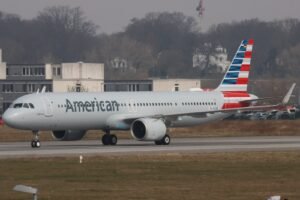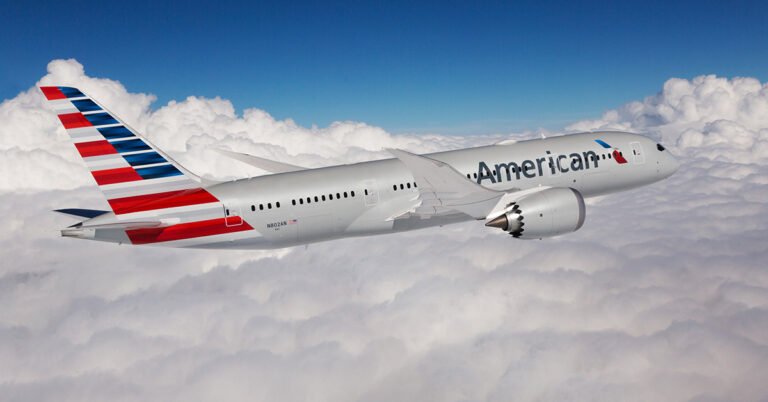American Airlines Unique Transatlantic Training Flights
American Airlines is executing 20 round-trip flights without passengers or cargo between Philadelphia (PHL) and Edinburgh (EDI) this month. These flights involve an Airbus A321neo operating daily solely for training purposes from September 4 to September 24, 2025.

Introduction of Airbus A321XLR
This initiative aims to prepare check airmen ahead of the Airbus A321XLR’s integration into American Airlines’ international network. The effort underscores the airline’s dedication to ensuring its pilots are certified for transatlantic operations.
Current Airbus A321neo Operations
Typically, American Airlines operates a Boeing 787 for its seasonal Philadelphia to Edinburgh route. However, for this training exercise, the airline is utilizing a newly registered Airbus A321neo, N471AN, with the following daily schedule:
- AA9805: Philadelphia (PHL) – Edinburgh (EDI): Departs 8:40 PM, arrives 8:30 AM (+1 day)
- AA9806: Edinburgh (EDI) – Philadelphia (PHL): Departs 9:30 AM, arrives 12:00 PM
Significance of the A321XLR
The Airbus A321XLR is a longer-range version of the A321neo, and American Airlines plans to employ it for transatlantic flights in future years. Since this involves international regulations, including North Atlantic Tracks, pilots require specialized training.
The Role of Check Airmen
Check airmen, senior pilots responsible for training and evaluating other pilots, need to be qualified in transatlantic operations for the A321XLR. Once certified, they can train additional pilots, ensuring a sufficient number of qualified crew for new routes.
Training Logistics
Since American Airlines currently lacks Airbus narrow-body transatlantic services, dedicated flights are required for training. Philadelphia to Edinburgh was chosen due to its position as one of the shortest viable transatlantic routes with manageable air traffic and airport operations.
Financial Aspects
The training entails significant expenditure, as operating 20 round-trip flights with no passengers or cargo will likely have costs exceeding a million dollars, covering fuel, depreciation, and crew expenses.
Preparing for the A321XLR at JFK
The timing of these flights coincides with American Airlines’ plans to establish an international pilot base for the Airbus A321XLR at New York JFK Airport. This base will support new transatlantic routes, providing improved efficiency for medium-sized markets.
Conclusion
By training check airmen now, American Airlines is positioning itself for the successful entry of the A321XLR into service, minimizing potential delays in regular operations. This exercise highlights the complexities and strategic importance of preparing for new aircraft types.

